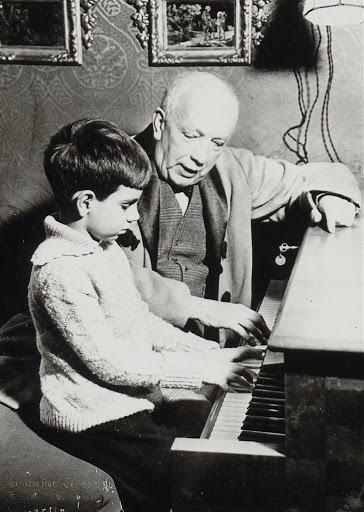Tim Page takes up the cudgels for Richard Strauss
mainI used to argue with Michael Kennedy, who loved both, that you cannot split your loyalties between Mahler and Strauss. When push comes to shove, you either take the high mind (Mahler) or the low (Strauss). Michael confessed that, at the crossroads, he’d go with Strauss.
Since his recent death, I had begun to fear that there was no-one left to fight with vigour for the man of seven veils.
Happily, into the ring springs my friend Tim Page with a robust pro-Strauss diatribe in NYRB. Read here, enjoy, dispute.
Tim and I will slug this out somewhere public, some time.






Comments